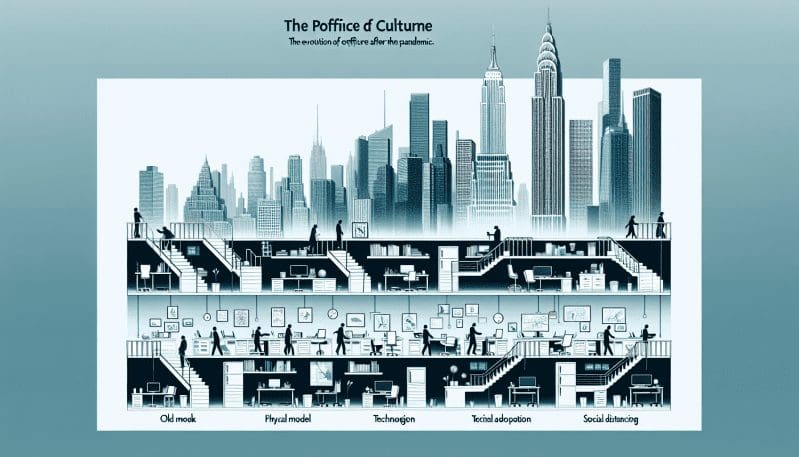As the world slowly emerges from the shadows of the COVID-19 pandemic, we’re witnessing a metamorphosis of office culture, particularly in the bustling metropolis of New York. A city that once pulsated with the collective energy of its workforce has had to adapt to a dramatically altered landscape. The seismic shift to remote work, the reimagining of physical office spaces, and a revolution in employee expectations have laid the foundation for a new era in the working world.
The Pivot to Remote Work: A Paradigm Shift
The pandemic has irreversibly popularized remote work, a trend that New York companies have had to embrace to remain operational. While initially a forced adaptation, many organizations and employees have experienced the benefits of telecommuting—flexibility, time saved on commuting, and in some instances, increased productivity. However, this shift has also raised questions about the sustainability of remote work cultures, employee isolation, and the potential erosion of work-life boundaries.
Reimagining Office Spaces: From Cubicles to Collaboration Hubs
For those returning to the office, gone are the days of high-walled cubicles and the ubiquitous open-plan. Instead, New York’s office spaces are being redesigned to foster collaboration and flexibility while prioritizing health and safety. We’re seeing the rise of hybrid office models that function as meeting places for teams on rotation, rather than daily workstations—a trend that mirrors the city’s innovative spirit and adaptability.
Changing Employee Expectations: The Demand for a New Work-Life Synergy
Employees now expect more than just a paycheck from their jobs. They seek meaningful work, a healthy work-life balance, and employers who are responsive to their well-being. New York organizations are being called upon to recalibrate their benefits and policies to attract and retain talent. Companies are enhancing their support for mental health, offering more flexible hours, and even considering four-day workweeks.
The Long-term Impacts on Productivity and Mental Health
The ripple effects of these cultural shifts on productivity and mental health are still unfolding. While some employees thrive in a remote environment, others may struggle with motivation or feel disconnected from their teams. New York companies are challenged with finding a balance—leveraging technology to facilitate productivity while also nurturing the human element that is fundamental to a cohesive work culture.
Fostering a Post-Pandemic Office Culture that Thrives
As we navigate this new normal, it is clear that the organizations which are quick to adapt, prioritize employee well-being, and embrace flexibility will be the ones to flourish. New York, with its innate resilience and capacity for reinvention, is the perfect incubator for a thriving post-pandemic office culture. It’s not just about survival—it’s about redefining what the workplace can and should be in the wake of unprecedented change.
In conclusion, the evolution of office culture in New York post-pandemic is a tale of transformation and resilience. From remote work innovations to redesigned office spaces, and a reevaluation of what employees need and expect from their employers, the city’s work culture is being reborn. Organizations that are sensitive to these shifts and proactive in fostering an adaptable and supportive environment will not only navigate the post-pandemic landscape successfully but will also set new standards for the workplaces of tomorrow.




























